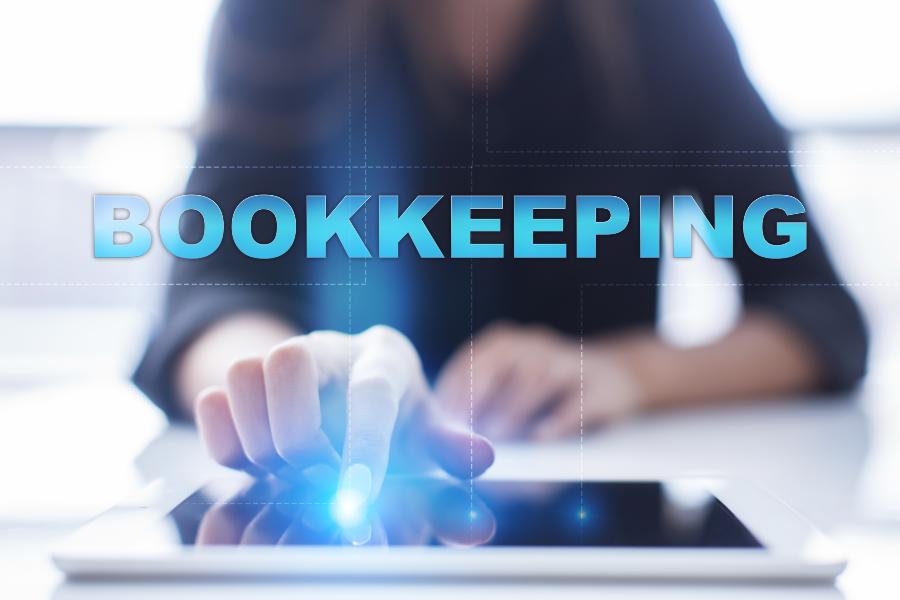The average hourly rate for freelance bookkeepers ranges from $17.01 to $28.48. Depending on your geographic location, this amount will be more or less than the average national rate of $22.75 per hour. Another option is to work as an in-house bookkeeper, typically earning a salary of $59,429 per year, or the national average of $27.27 per hour. However, depending on where you live, average salaries can range from $42,936 to $70,482 per year.
Other factors that can impact the hourly rate include the freelance bookkeeper’s level of education, certifications obtained, such as QuickBooks ProAdvisor, and the software used. A specialty in additional services like payroll or financial analysis, the frequency of services offered, and even expertise in certain accounting applications can also affect the rate.
Factors Influencing Bookkeeper Rates
Eight key factors will impact the hourly rate you’ll charge for your services.
1. Geographic Location
According to a survey by ZipRecruiter, the average freelance bookkeeper hourly rate is $22.75 per hour, but these rates vary from one state to the next. The hourly rate ranges from $17.01 in Florida to $28.48 in Massachusetts. Meanwhile, the average hourly wage for in-house bookkeepers is approximately $27.27, ranging from $20.64 in Florida to $33.89 in Washington.
Select a state from the drop-down menus below to show the average rate for bookkeepers in that state.
Average Freelance Bookkeeper Hourly Rate By State Data taken from a ZipRecruiter survey based on millions of open self-employed bookkeeper jobs across the US. Rates update in real-time, and rates listed are as of writing on 11/9/2024.
Comparatively, the average hourly wage for in-house bookkeepers is much higher in many cases, depending on the state.
Average In-house Bookkeeper Hourly Wage by State Data taken from a ZipRecruiter survey based on millions of open in-house bookkeeper jobs across the US. Rates update in real-time, and rates listed are as of writing on 11/9/2024.
2. Level of Education
Your level of education is important to consider when determining the best way to attract potential clients. Having a degree under your belt will give your customers confidence and the willingness to pay more.
A bachelor’s degree isn’t necessary to be a bookkeeper; ideally, you should consider an associate degree from a local community college, but many schools also offer bookkeeping certificates that can be earned in less time.
3. Bookkeeper Certifications
There are four types of certifications for bookkeepers that I recommend.
1. American Institute of Professional Bookkeepers (AIPB)
The AIPB certification program is ideal for someone who doesn’t have any formal education in bookkeeping. Certification exam and materials are $574 for nonmembers and $479 for AIPB members. A one-year membership to AIPB is $60.
Upon completion of all certification requirements, you’ll earn the designation of Certified Bookkeeper (CB), which you can include on your business cards and marketing materials.
2. National Association of Certified Public Bookkeepers (NACPB)
The NACPB certification program is ideal for those with an associate degree or bachelor’s degree in accounting. The cost for the course, certification exam, and materials is $2,095 for nonmembers and $1,675 for NACPB members. A one-year membership to NACPB is $250 for new members and $200 for renewals.
Once all certification requirements have been met, you’ll earn the designation Certified Professional Bookkeeper (CPB), which you can include on your business cards and marketing materials.
3. QuickBooks ProAdvisor
In addition to getting certified through the AIPB or NACPB, I recommend that you get certified in QuickBooks. The QuickBooks ProAdvisor certification program is ideal for freelance bookkeepers because it allows you to get certified for free with no strings attached. It’s also arguably the most valuable bookkeeper certification, as the vast majority of small businesses in the US use QuickBooks.
For guidance, read our article on how to become a QuickBooks ProAdvisor.
4. QuickBooks Certified User
A relatively new form of certifications, Intuit now offers QuickBooks Certified User Online and Intuit Certified Bookkeeping Professional. You can choose to pursue one or both of these certifications and also earn a total of 3 college credits.
See our article on how to become a QuickBooks Certified User for more information. Or, if you’re choosing between becoming a ProAdvisor and Certified User, read our QuickBooks Certified User vs ProAdvisor comparison.
4. Bookkeeper Experience
While having a degree and/or bookkeeper certification will give you the knowledge that you need to get your foot in the door, having practical work experience is equally valuable. The more experience you have doing actual bookkeeping work, the more confident you’ll be in your skills, which will translate into higher billable rates.
5. Client Size
Small clients often have simple bookkeeping needs and small revenue, so you may want to charge them less. For instance, you may charge an hourly rate of $40 to a large client that earns up to $2 million in revenue and around $30 for a very small client with an annual revenue of $300,000.
6. Type of Bookkeeping Services Provided
In general, bookkeeping services include managing all aspects of accounts payable (A/P) and accounts receivable (A/R), reconciling bank and credit card accounts, and generating monthly financial reports. If you have the expertise, you could increase your billable rate by offering payroll in addition to bookkeeping services.
Depending on the industry, you might be able to extend your services to include cost accounting for projects and jobs. Because this type of service requires a lot of industry-specific knowledge, you’ll be able to charge a higher rate than on typical bookkeeping engagements.
Before bringing on a new customer, you should meet and assess their situation. Is there more you can do than providing financial statements? As an industry expert, you might help them recognize needs and opportunities. The assessment will consist of gathering information that’ll help you determine the amount of time and level of complexity required to meet the client’s needs before you provide your quoted price. Remember, more specialized services can demand a higher rate of pay.
7. Accounting Software Used
It’s important to note that the tools you use may affect your rate, as some solutions are more expensive than others. Another important factor is your expertise in various accounting platforms. In general, good cloud-based software makes accounting easier and reduces the hours, allowing you to charge more per hour.
We recommend QuickBooks Online, which we ranked as the overall best small business accounting software. If you decide to become certified as a QuickBooks ProAdvisor, you’ll have the added benefit of a free subscription to QuickBooks Online Accountant.
8. Frequency of Service
The frequency with which you’ll provide services to a client should also be considered when you’re trying to decide what to charge for your bookkeeping services. Some clients will be one-time customers, and others will require your services on a recurring basis: monthly, quarterly, or annually.
Ideally, the clients whose books you review most often should have a lower rate than those that you see on a one-time or annual basis. Monthly and quarterly clients often require less work than those you see once a year because you review their books more often.
Bookkeeping clients typically fall into one of the following four categories:
- One-time service: Clients may hire you to perform a specific task rather than ongoing services. Often, this is for a new business needing help with setting up its company file or training to use its accounting software. The rate that you charge for this service should be higher than the rate that you charge your recurring clients.
- Annual service: The clients that you see once a year are typically those that bring you a shoebox of receipts so that you can prepare their tax returns. Similar to one-time service clients, you’ll need to invest some time to get this client’s books in order, as they may lack any sort of organized system. The hourly rate that you charge should be similar to what you’re charging for a one-time service client.
- Monthly service: Clients that fall into this group are typically bookkeeping and/or payroll clients that you’ll bill once a month. As discussed, monthly clients will be a lot less work than one-time or annual clients, so you should consider offering a discounted rate to these clients.
- Quarterly service: Clients for which you file quarterly payroll returns generally fall into this group. You’ll be familiar with these clients since you’ll see them every three months or so. This rate should be similar to what the monthly clients pay but adjusted for the type of work done (such as payroll and payroll tax filing).
How to Transition to a Higher Billing Rate
As a bookkeeper, it can be tricky to transition to a higher billing rate, but it’s definitely possible with careful planning and communication. Here’s a breakdown of how to achieve this:
Assess Your Value and Expertise
First, identify your strengths. What specialized skills or knowledge do you possess? Do you have expertise in a particular industry, software, or accounting method? This will help justify your desire for a higher billing rate.
Think about how you have helped your clients save time and money or reduce stress, and request testimonials from them so that you can provide concrete examples of the value you deliver. Also, research what other bookkeepers with similar experience and expertise charge in your area so that you can be prepared to offer a competitive rate.
Enhance Your Service Offerings
Consider obtaining additional certifications like QuickBooks ProAdvisor or specializing in a niche area such as construction or ecommerce. You can also introduce higher-value services like financial analysis, budgeting, cash flow forecasting, or tax preparation. Bundle related services into packages to provide comprehensive solutions and justify higher prices.
Develop a Pricing Strategy
Shift your focus from hourly rates to value-based pricing. Determine the value you provide to clients and price your services accordingly. Create different service packages at various price points to cater to different client needs and budgets. For defined projects, offer a fixed price that includes all necessary services.
Communicate With Clients
Give existing clients sufficient notice of any upcoming rate changes, and clearly communicate the reasons for the increase, emphasizing the value they receive and any enhancements to your services. Consider offering existing clients the option to continue at their current rate for a limited time or transition to a new service package.
Attract New Clients at Higher Rates
Refine your marketing efforts to attract clients who value your expertise and are willing to pay for premium services. Attend industry events and connect with potential clients who align with your target market. Highlight your qualifications, experience, and client success stories on your website and marketing materials.
Refine Your Business Practices
Streamline your processes and leverage technology to maximize productivity and minimize time spent on tasks. Allocate resources to professional development, marketing, and business tools to support your growth. Also, be sure to monitor your financials and client satisfaction to ensure your pricing strategy is effective and sustainable.
Impact of Economic Trends on Bookkeeping Rates
Economic trends can have a significant impact on bookkeeping rates in a number of ways. Here are some of the key factors:
Inflation
As inflation rises, the cost of doing business increases for bookkeepers. You’ll face higher expenses for things like office rent, utilities, software subscriptions, and employee salaries if you have staff. These increased costs are often passed on to clients in the form of higher fees.
You may also need to adjust your pricing strategies to keep pace with inflation and maintain profitability. This could involve raising hourly rates, charging fixed fees based on the current value of services, or implementing surcharges to cover specific inflationary costs.
Economic Growth or Recession
During periods of economic growth, businesses tend to expand and require more sophisticated bookkeeping services. This can lead to increased demand and potentially higher fees as bookkeepers become busier. Conversely, in a recession, businesses may cut back on expenses, including bookkeeping services, which could put downward pressure on fees.
Economic conditions can influence the types of transactions businesses engage in. For example, during times of uncertainty, businesses might explore new markets, invest in different assets, or restructure their operations. These complex transactions may require more specialized bookkeeping knowledge and therefore command higher fees.
Technological Advancements
Advances in accounting software and automation tools can increase efficiency and reduce the time required for certain tasks. This could lead to lower fees for some standardized services. However, it may also necessitate investment in new technologies and training, which could offset some of the cost savings.
As technology evolves, so do the risks associated with data security and regulatory compliance. Bookkeepers may need to invest in more robust security measures and stay updated on evolving compliance requirements, which could impact their fees.
Other Factors
There are three additional factors that can affect bookkeeping rates:
- Competition: The level of competition among bookkeepers in a particular market can influence pricing. In areas with high competition, bookkeepers may need to keep fees lower to attract clients.
- Client industry: Some industries have more complex bookkeeping needs than others. Bookkeepers specializing in industries like healthcare or legal may charge higher fees because of the specialized knowledge required.
- Geographical location: The costs of living and operating a business vary by location. Bookkeepers in metropolitan areas generally charge higher fees than those in smaller towns or rural areas.
Frequently Asked Questions (FAQs)
Freelance bookkeepers charge anywhere from $17.01 to $28.48 per hour, depending on several factors, such as location, experience, certification, and type of bookkeeping services provided.
Hourly wages for in-house bookkeepers range from $20.64 to $33.89, depending on the geographic location. This translates to an average annual salary that ranges from $42,936 to $70,482.
Income for online bookkeepers and freelance bookkeepers may vary depending on several factors, such as experience, skills, location, client base, and the types of services that they offer. Overall, there’s no clear answer since income will vary based on individual circumstances.
The top three states with the highest freelance bookkeeping rates are Massachusetts, Washington, and Colorado, with average hourly rates of $28.48, $27.23, and $26.81, respectively.
Setting your bookkeeping rates can be a tricky balancing act. A common pitfall to avoid is undervaluing your services. While hourly rates are common, they can undervalue your expertise, especially if you complete your tasks quickly. Consider value-based pricing that reflects the benefits you deliver to clients. Also, be sure not to overcomplicate your pricing by not having too many pricing tiers or not clearly defining your services.
Bottom Line
Many factors contribute to your decision about how much to bill your clients. Once you evaluate the average rate of pay for your geographic location, your level of education, and any certifications, you’ll have a better idea of what to expect in terms of an hourly rate. Your work experience is also key, as are the types of bookkeeping services offered, your expertise with accounting software, and the frequency at which you’ll be providing services to your client.


